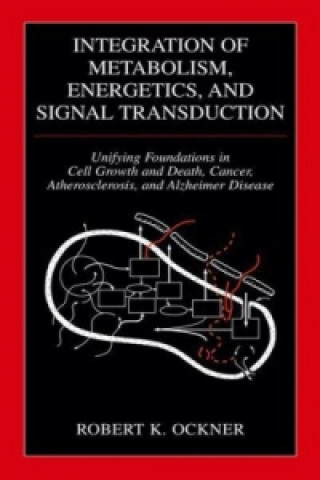
Kód: 01422056
Integration of Metabolism, Energetics, and Signal Transduction
Autor Robert K. Ockner
This book demonstrates how metabolism and energetics are directly linked to those signal transduction pathways that are essential to survival of the cell, the organism, and the species. Recurring patterns of interaction among meta ... celý popis
- Jazyk:
 Angličtina
Angličtina - Väzba: Brožovaná
- Počet strán: 387
Nakladateľ: Springer, Berlin, 2014
- Viac informácií o knihe

137.59 €
Dostupnosť:
50 % šanca Máme informáciu, že by titul mohol byť dostupný. Na základe vašej objednávky sa ho pokúsime do 6 týždňov zabezpečiť.
Máme informáciu, že by titul mohol byť dostupný. Na základe vašej objednávky sa ho pokúsime do 6 týždňov zabezpečiť.Prehľadáme celý svet
Mohlo by sa vám tiež páčiť
-

Anxious Masculinity in Early Modern England
57.92 € -

The Telegraph: Ultimate General Knowledge Crosswords 1
9.01 € -13 % -

At Home With Times Tables
6.65 € -

Topology and Geometry
89.71 € -

Next Generation Transport Networks
139.74 € -

Essence of Dielectric Waveguides
214.90 € -

Lead-Free Electronic Solders
277.54 €
Darujte túto knihu ešte dnes
- Objednajte knihu a vyberte Zaslať ako darček.
- Obratom obdržíte darovací poukaz na knihu, ktorý môžete ihneď odovzdať obdarovanému.
- Knihu zašleme na adresu obdarovaného, o nič sa nestaráte.
Informovať o naskladnení knihy
Zadajte do formulára e-mailovú adresu a akonáhle knihu naskladníme, zašleme vám o tom správu. Postrážime všetko za vás.
Viac informácií o knihe Integration of Metabolism, Energetics, and Signal Transduction
Nákupom získate 340 bodov
 Anotácia knihy
Anotácia knihy
This book demonstrates how metabolism and energetics are directly linked to those signal transduction pathways that are essential to survival of the cell, the organism, and the species. Recurring patterns of interaction among metabolism, energetics, and signal transduction are fundamental in diverse aspects of human health and disease. This book explores these phenomena in relation to cell growth and death, cancer, atherosclerosis and Alzheimer disease. Part I of the book explores the origins and theory of integration.§Topics covered in Part II include: nutrient and energy metabolism in cell proliferation; fatty acids and growth regulation; mitochondrial function in cell growth and death; metabolic effects of antiproliferative agents; fatty acids and mitochondria, cell growth and injury; metabolism and gene expression.§Part III of the book deals with energetics of neuronal activation; utilization of oxidizable substrates in the brain; astrocyte metabolism and astrocyte-neuron interaction; neuronal energy metabolism in the brain; astroctyes as metabolic buffer and mediator of neuronal injury; and metabolic factors in the pathogenesis of Alzheimer Disease.§"Dr. Ockner has written a fascinating and original book which explores potential metabolic links to neurodegeneration. He takes a fresh look at metabolic pathways involving interaction between astrocyte and neuron that are important for brain health and may play a significant role in the pathogenesis of Alzheimer disease and other normal and pathological phenomena. Dr. Ockner has a distinguished research career in fatty acid metabolism and the fatty acid binding proteins and writes with clarity upon this under-explored aspect of the brain in health and disease. Not only is his book important for understanding links between systemic and cerebral metabolism in neurodegeneration, but is a must read for scientists with an interest in the connection between metabolic pathways and brain function." Bruce Miller, M.D.§Professor of Neurology§Clinical director of the Memory and Aging Center§University of California, San FranciscoThis book demonstrates how metabolism and energetics are directly linked to those signal transduction pathways that are essential to survival of the cell, the organism, and the species. Recurring patterns of interaction among metabolism, energetics, and signal transduction are fundamental in diverse aspects of human health and disease. This book explores these phenomena in relation to cell growth and death, cancer, atherosclerosis and Alzheimer disease. Part I of the book explores the origins and theory of integration.§Topics covered in Part II include: nutrient and energy metabolism in cell proliferation; fatty acids and growth regulation; mitochondrial function in cell growth and death; metabolic effects of antiproliferative agents; fatty acids and mitochondria, cell growth and injury; metabolism and gene expression.§Part III of the book deals with energetics of neuronal activation; utilization of oxidizable substrates in the brain; astrocyte metabolism and astrocyte-neuron interaction; neuronal energy metabolism in the brain; astroctyes as metabolic buffer and mediator of neuronal injury; and metabolic factors in the pathogenesis of Alzheimer Disease.INTEGRATION OF METABOLISM,§ENERGETICS, AND SIGNAL TRANSDUCTION§Unifying Foundations in Cell Growth and Death, Cancer,§Atherosclerosis, and Alzheimer Disease§ROBERT K. OCKNER §"Dr. Ockner has written a fascinating and original book which explores potential metabolic links to neurodegeneration. He takes a fresh look at metabolic pathways involving interaction between astrocyte and neuron that are important for brain health and may play a significant role in the pathogenesis of Alzheimer disease and other normal and pathological phenomena. Dr. Ockner has a distinguished research career in fatty acid metabolism and the fatty acid binding proteins and writes with clarity upon this under-explored aspect of the brain in health and disease. Not only is his book important for understanding links between systemic and cerebral metabolism in neurodegeneration, but is a must read for scientists with an interest in the connection between metabolic pathways and brain function." Dr. Bruce Miller,§Professor of Neurology§Clinical director of the Memory and Aging Center§University of California, San Francisco §"I find this book to be a commendable and comprehensive undertaking as it encompasses an evaluation of a wide area of scientific research. Researchers working in lipid metabolism to those interested in mitochondrial energetics and in the mechanisms of signal transduction pathways in cancer and Alzheimer disease will benefit from this book." M.A.Q. Siddiqui, §Professor and Chairman of the Department of Anatomy and Cell Biology §SUNY Downstate, Brooklyn, NY§Robert K. Ockner, M.D. is Professor of Medicine at the University of California, San Francisco, and is former Director of the UCSF Liver Center and Division of Gastroenterology. He and colleagues initially identified and characterized the cytosolic fatty acid binding proteins. He is a graduate of the Harvard Medical School and completed clinical and research training at Boston City Hospital, National Institutes of Health, and Massachusetts General Hospital. §Cover art by Sadie McFarlane
 Parametre knihy
Parametre knihy
Zaradenie knihy Knihy po anglicky Mathematics & science Biology, life sciences Biochemistry
137.59 €
- Celý názov: Integration of Metabolism, Energetics, and Signal Transduction
- Autor: Robert K. Ockner
- Jazyk:
 Angličtina
Angličtina - Väzba: Brožovaná
- Počet strán: 387
- EAN: 9781441934505
- ID: 01422056
- Nakladateľ: Springer, Berlin
- Hmotnosť: 706 g
- Rozmery: 248 × 165 mm
- Rok vydania: 2014
Obľúbené z iného súdka
-

Wilson and Walker's Principles and Techniques of Biochemistry and Molecular Biology
58.13 € -

Schaum's Outline of Biochemistry, Third Edition
32.49 € -14 % -

DHEA Breakthrough
9.01 € -13 % -

Biochemistry, Fourth Edition International Adaptation
77.09 € -2 % -
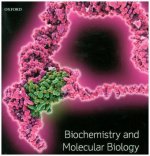
Biochemistry and Molecular Biology
68.99 € -
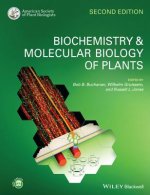
Biochemistry and Molecular Biology of Plants 2e
130.21 € -4 % -

Ice Cream
112.16 € -

Advanced Molecular Genetics
178.29 € -

Biochemistry
69.92 € -
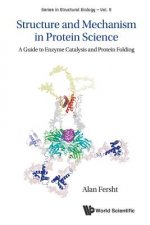
Structure And Mechanism In Protein Science: A Guide To Enzyme Catalysis And Protein Folding
89.91 € -

Voet's Principles of Biochemistry, 5th Edition Glo bal Edition
77.09 € -2 % -

Exercise Biochemistry
131.03 € -12 % -
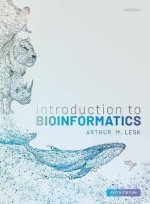
Introduction to Bioinformatics
60.28 € -

Female Brain
17.22 € -9 % -
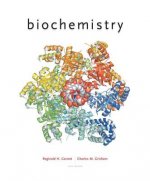
Biochemistry
442.52 € -
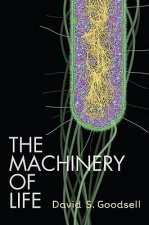
Machinery of Life
31.77 € -18 % -

BIOS Instant Notes in Biochemistry
37.11 € -
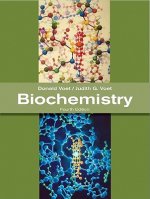
Biochemistry
442.21 € -

Protein Structure and Function
81.30 € -6 % -

Medical Biochemistry Principles for Medical Students
26.24 € -

Cell: A Very Short Introduction
10.14 € -23 % -
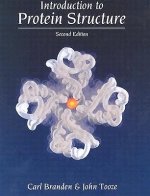
Introduction to Protein Structure
109.08 € -
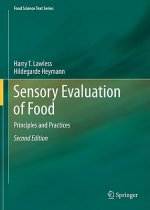
Sensory Evaluation of Food
101.09 € -
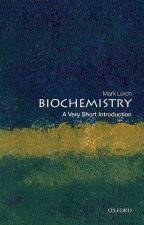
Biochemistry: A Very Short Introduction
9.12 € -24 % -

Pulp and Paper Industry
228.23 € -
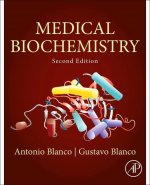
Medical Biochemistry
160.76 € -

Marks' Essentials of Medical Biochemistry
130.72 € -
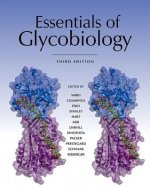
Essentials of Glycobiology, Third Edition
219.92 € -

Chemistry and Biochemistry of the Amino Acids
126 € -

Introduction to Proteins
120.36 € -
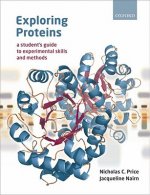
Exploring Proteins
74.63 € -

Case Files Biochemistry 3/E
52.08 € -
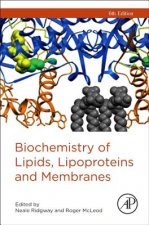
Biochemistry of Lipids, Lipoproteins and Membranes
114.21 € -
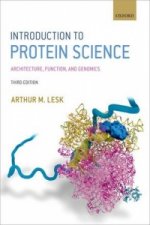
Introduction to Protein Science
82.22 € -
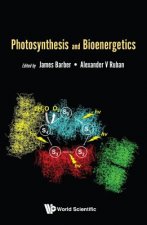
Photosynthesis And Bioenergetics
171.01 € -

Bioavailability, Leachability, Chemical Speciation, and Bioremediation of Heavy Metals in the Process of Composting
167.22 € -

Bioenergetics
89.19 € -

Protein Engineering Techniques
70.94 € -

Proteomics Protocols Handbook
421.60 € -

Introduction to Bioorganic Chemistry and Chemical Biology
109.08 € -

Chemistry of Life
14.45 € -23 % -

Growth Hormone Secretagogues in Clinical Practice
478.82 € -
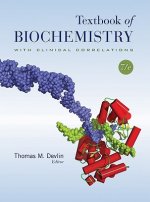
Textbook of Biochemistry with Clinical Correlations
338.24 € -

Plant Biochemistry
143.12 € -

Environmental Soil Biology
139.74 € -

Polar Lipids
131.95 € -

GHRH, GH, and IGF-I
277.54 € -

Physico-chemical Properties of Jackfruit
63.76 € -
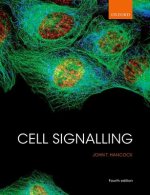
Cell Signalling
67.35 €
Osobný odber Bratislava a 2642 dalších
Copyright ©2008-24 najlacnejsie-knihy.sk Všetky práva vyhradenéSúkromieCookies


 21 miliónov titulov
21 miliónov titulov Vrátenie do mesiaca
Vrátenie do mesiaca 02/210 210 99 (8-15.30h)
02/210 210 99 (8-15.30h)